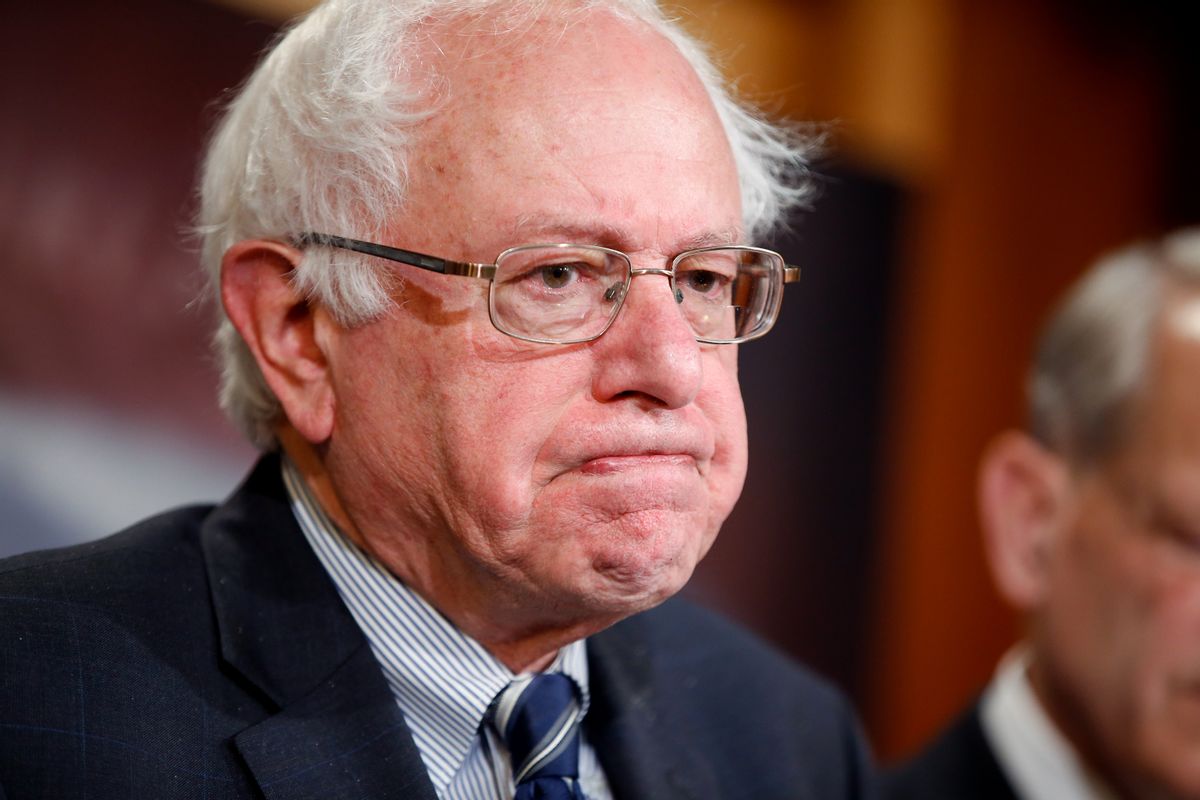On Thursday, Sen. Bernie Sanders, the Vermont independent and self-described democratic socialist, officially announced his intention to be the Democratic Party’s next presidential nominee. As Nate Silver and innumerable lesser lights will tell you, his chances of winning are vanishingly small. But at least primary voters who find former Secretary of State Hillary Clinton too moderate now have the option of voting for someone else.
I’m a fan of Sanders’ work (both in the Senate and in the recording studio) and I hope he’s able to use his campaign to pressure Clinton into taking a more antagonistic stance toward her friends on Wall Street. Yet although I welcome Sanders’ entrance into the race, I also know that it’s not entirely without drawbacks. Because while Sanders may be able to make the politics of class a bigger part of 2016, his campaign will definitely inspire the kind of punditry that misleads readers about how politics actually works.
Sanders hasn’t even been running for 24 hours yet, but National Review’s Charles C.W. Cooke has already provided us with a good example of what I mean. In a Wednesday post titled “Bernie Sanders: The Anti-Hillary,” the self-styled “conservatarian” Cooke argues that while he strongly disagrees with Sanders’ politics, there is “a great deal to like and to respect” about the 73-year-old lefty. That may be true, but what’s obvious upon inspection is that Cooke, like many of the Vermonter’s boosters, doesn’t really enjoy Sanders; he just hates Hillary Clinton.
Indeed, according to Cooke, the Democratic Party’s prohibitive front-runner is “corrupt, controlling, soulless, cynical, entitled, and mostly synthetic” (whatever that means). Because of Clinton’s dominant position, he writes, the Democratic Party primary, which has in most ways barely started, “is almost entirely devoid of ideas.” Her campaign, he says, “has been reactive” and “motivated primarily by fear”; while her rhetoric has been “meaningless” and comprised of “saccharine banalities … poll-tested within a fraction of an inch.” This long stream of invective, however, could’ve been pared to four simple words: She’s a professional politician.
But Sanders, according to Cooke, is something different. He is a “welcome counterpoint to such artifice” and is “open, blunt, unapologetic, compelling, ready to debate” and “suspicious of frivolity.” All of which, Cooke writes, makes him “downright necessary” (his emphasis). With Sanders in the mix, “American discourse will have its standard raised” and there will be “somebody within the contest … speaking to progressives’ concerns.” It’s all very heady stuff; you practically expect Cooke to start waxing lyrical about hope and change.
I’d imagine the post has made some in Sanders’ camp happy; they’ll probably (and logically) take whatever support they can get. But with all due respect to Cooke, this ode to Bernie is mostly nonsense. Rather than make the case for Sanders as a visionary iconoclast, it just reveals Cooke to be either naive about American democracy — or so contemptuous of Hillary Clinton that he cannot let analysis beyond “she’s a bad person” muddy his vision. I can’t speak to whether Clinton or Sanders are good people, because I don’t know them; but I think it’s fair to say that we could explain their differences without focusing so much on their character.
To begin with the obvious, one reason why Clinton may seem less likely than Sanders to stand on principle, consequences be damned, is probably because she actually wants to win. God bless Sanders for trying to push back against our utterly corrupt campaign finance status quo, for example; but a candidate who unilaterally disarms by refusing to establish a super PAC or raise funds from the wealthy is a candidate who is content to do the right thing — and lose. I understand the romantic appeal of choosing honor over worldly success, of course. But I’ve yet to understand how campaign finance regulations happen when the people who support them fail and the people who oppose them win.
In a similar vein, while there’s a psychic and emotional pleasure to be derived from listening to a candidate who, like Sanders, is willing to tell it like it is, a would-be president must be able to do quite a bit more than tend to my feels. If, hypothetically, Hillary Clinton and Bernie Sanders both promise to support a financial transaction tax if they become president, it doesn’t particularly matter whether or not the former is willing to describe the policy as being about values. If calling it a technocratic tweak, rather than a volley in the class war, makes it that much easier to get that 60th vote in the Senate, then, well, what difference does it make?
Granted, it’d be nice if we lived in a world where a successful Democratic candidate could speak in a way that didn’t sound quite so full of shit. But that isn’t a mere fantasy simply because Hillary Clinton (or Martin O’Malley or Joe Biden or whomever) won’t let it happen. It’s a fantasy because that’s not the world we’re in! You can blame that on the media or the 1 percent or the party leadership, often for good reason. But ultimately you also have to acknowledge that there’s a point where voters are involved, too. Politicians who win elections tend to talk in a similarly plastic way for a reason — and it’s not a fantastically improbable series of coincidences.
As I noted earlier, Cooke thinks of himself as a “conservatarian,” and he does not lack the antipathy for politics that courses throughout much of libertarianism. He’d never support the policy platform of either Clinton or Sanders; so reducing the Democratic Primary to a kind of rhetorical fashion show doesn’t threaten any political cause he believes in. For lefties who ultimately want the Democrats to win in 2016, however, the stakes are much different. A Sanders campaign designed to pull Clinton to the left should be welcomed; but one centered on Clinton being a bad person would be a dumb, unnecessary risk.

Shares